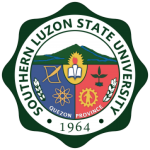.jpg)
Southern Luzon State University (SLSU), in collaboration with the University of the Philippines Los Baños - Office for Institutional Development in Higher Education (UPLB-OIDHE), conducted a three-day training program from November 6 to 8 aimed at equipping faculty and staff with essential skills for assessing the impact of extension projects
The primary goal of the training was to capacitate the SLSU faculty and staff with ability to conduct impact assessments on extension programs and to build a multidisciplinary team that will spearhead evaluations for completed projects. By developing this in-house expertise, SLSU aims to gain valuable feedback on how its extension initiatives benefit the communities it serves, enabling continuous improvement to further address the needs of the community.
The training featured distinguished resources persons, including Dr. Hadji C. Jalotjot and Mr. Francis John F. Faderogao from the UPLB Center for Strategic Planning and Policy Studies, College of Public Affairs and Development; Dr. Nancy A. Tandang, Director of the UPLB Institute of Statistics, College of Arts and Sciences; Ms. Samantha Geraldine G. De los Santos from the UPLB Institute for Governance and Rural Development, College of Public Affairs and Development; Dr. Andrew Gasmen from the UPLB Agricultural Systems Institute, College of Agriculture and Food Science; and Dr. Emilia S. Visco from the Department of Social Development Services, College of Human Ecology.
The comprehensive training covered topics such as Foundations, Theories, and Principles of Impact Assessment; Measurements and Indicators; Tools and Methods for Impact Assessment (Quantitative and Qualitative); Agriculture Extension Projects Impact Assessment; and, Best Practices and Challenges in Extension and Public Service Impact Assessment. These areas are crucial not only for measuring the immediate effects of the university’s extension projects but also for capturing their long-term impacts on the community.
This initiative reflects SLSU’s dedication to delivering quality extension services with a sustainable community impact. The skills acquired through the training will enable the university to design, assess, and enhance its extension programs effectively.
By: Jaquelyn D. Merjudio

.jpg)
.jpg)
.jpg)
.jpg)
.jpg)
.jpg)
.jpg)
.jpg)
.jpg)
.jpg)
.jpg)
.jpg)
.jpg)
.jpg)
.jpg)
.jpg)
.jpg)
.jpg)
.jpg)
.jpg)
.jpg)
.jpg)
.jpg)